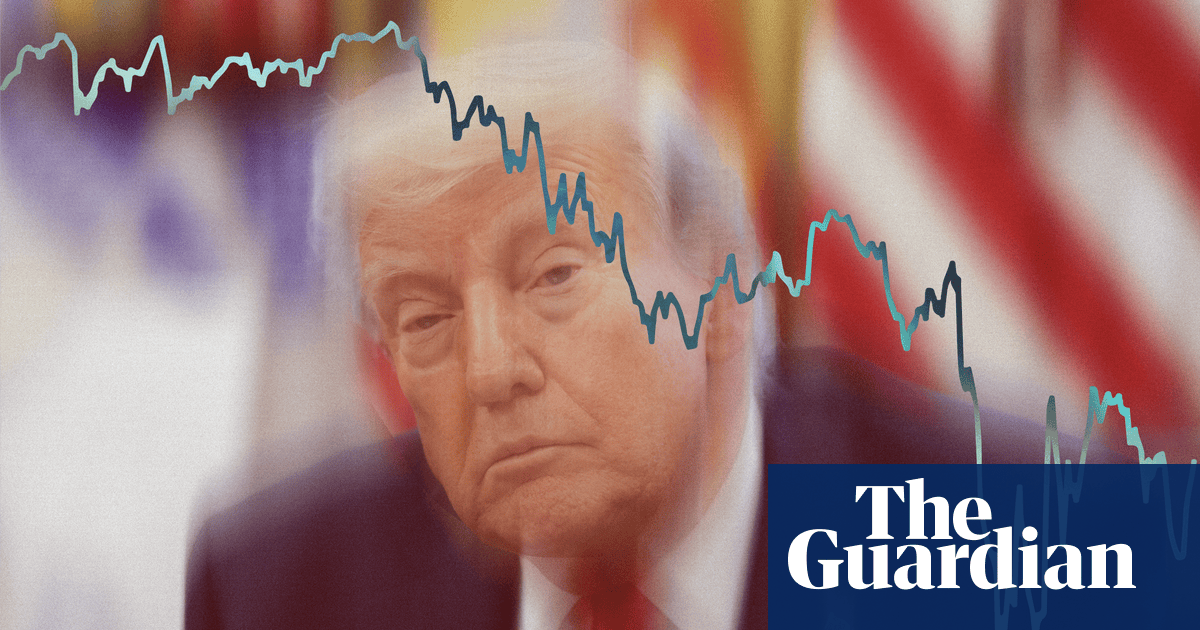Growth slowed dramatically in the US over the last quarter as Donald Trump sought to roll out an aggressive trade strategy, claiming that sweeping tariffs on the world would strengthen the American economy.
Gross domestic product (GDP), a key measure of overall growth in the US economy, fell by 0.3% in the first quarter of the year, down from 2.4% in the last quarter of 2024. The contraction – the first since the start of 2022 – puts the US on the brink of a technical recession, defined by two quarters of negative growth.
The drop in activity comes amid a huge fall in consumer sentiment, which in April dropped 32% to its lowest level since the 1990 recession.
Trump spent much of the first quarter threatening, and fleetingly implementing, sweeping tariffs on Canada and Mexico, and targeting China with higher duties on its exports.
Days into the second quarter, which was not covered by today’s GDP reading, he ordered even higher tariffs on goods from much of the world, before pulling back the tariffs on all countries but China. As it stands, Trump is charging a 10% universal tariff on imported goods from much of the world, along with a 145% tariff on imports from China.
Seemingly responding to deep fluctuations in the US stock market, Trump has shelved a wave of so-called “reciprocal tariffs” of up to 49% on specific countries, which he halted for 90 days.
He offered some relief to US automakers, who were facing a 25% tariff on all auto imports on Tuesday, signing an executive order that would allow them to receive a credit if they import auto parts but assemble the cars in the US.
Last week, stocks rallied on news that Trump said tariffs against China – which already has exemptions for some electronics – will be reduced “substantially” as the White House negotiates a deal with China, though Trump said that the tariff will not be eliminated completely. China has placed a 125% tariff on American goods in retaliation for Trump’s tariffs.
While the White House has said in recent weeks that Trump’s tariffs are meant to be a negotiating tactic, leaders around the world have said they will retaliate if Trump continues to try to bully them into negotiations.
“If one chooses to remain silent, compromise and cower, it will only make the bully want to push his luck more,” said the Chinese foreign minister, Wang Yi, on Monday.
Trump has been sensitive to criticism of his tariffs and the impact they are having on the economy. At one point over the last month, Trump threatened to remove Jerome Powell from his role as chair of the US Federal Reserve after Powell said that Trump’s tariffs could lead to permanent price hikes.
After markets fell, Trump eventually backed down, telling reporters that he had “no intention” of firing Powell.

.png) 3 hours ago
5
3 hours ago
5













































